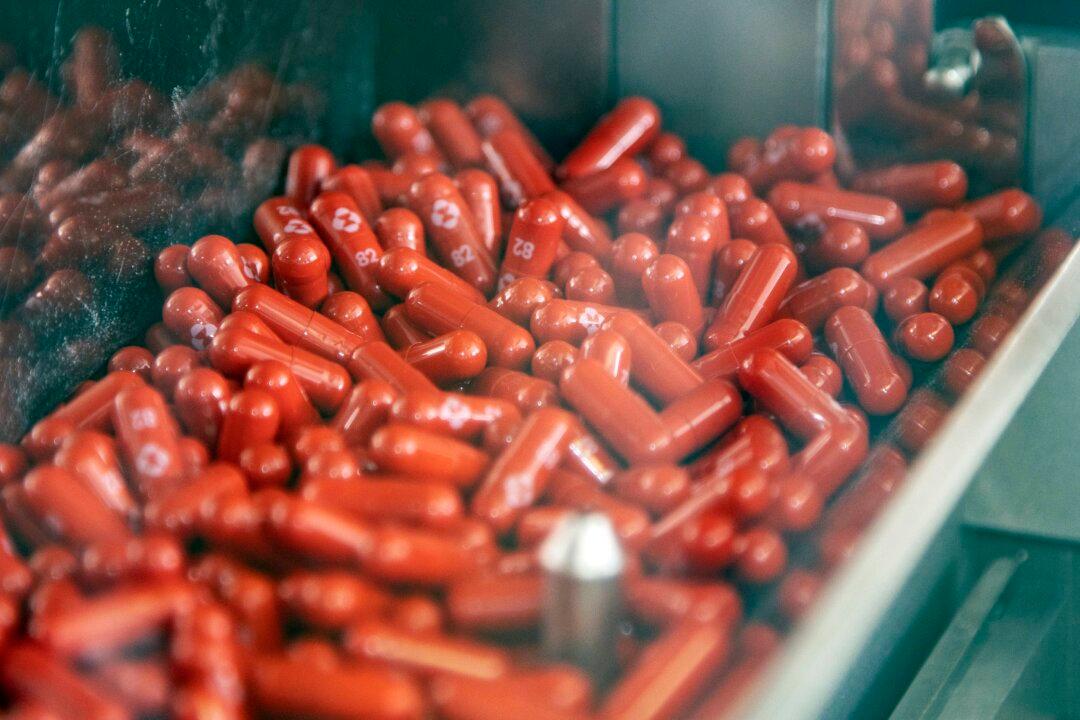Shares of Merck & Co surged on positive clinical trial results of its experimental antiviral COVID-19 pill while high-flying stocks of vaccine companies and makers of other coronavirus therapies were bruised.
Merck shares jumped as much as 12.3 percent and hit their highest level since February 2020 after data showed the company’s pill molnupiravir could halve the chances of dying or being hospitalized for those most at risk of contracting severe COVID-19.





